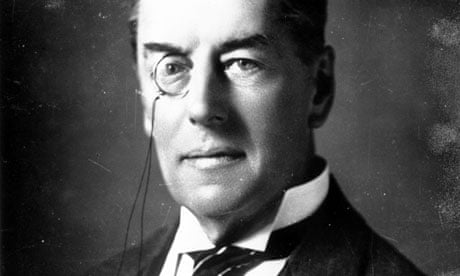The New Local Government Network's (NLGN) latest report More Light, More Power, started life with a simple question: if faced with the current storm in local authority finance, what would Joseph Chamberlain do?
Chamberlain is well known in the local government world as the visionary Victorian mayor who transformed Birmingham's fortunes. In the opinion of cities minister, Greg Clark, : "He has become a symbol of what good local government can achieve, and an abiding inspiration to generations of people who believe in public service in their city."
Investment in local assets was at the heart of Chamberlain's strategy. In 1874, he encouraged the council to buy out two local gas companies: Birmingham Gas and Light Company and the Staffordshire Gas Light Company. He obtained two low-interest loans to fund this purchase and assured the city that the scheme would pay for itself. The gas companies generated enough profit to enable the town to buy out the local water companies in 1875. Within 10 years, Birmingham had also cut the price of gas to its citizens by 30%.
Today, publicly owned assets in the UK have a book value of approximately £385bn. This is slightly more than the £375bn pumped into the economy through quantitative easing. Two-thirds of these assets are owned by local authorities.
Over the last decade councils have been under pressure to sell assets for capital receipts. However, the recession has severely limited the scope for this. The overall value of local government asset sales has halved since the crash and shows no great sign of recovery.
A quarter of councils expect receipts from asset sales to fall by over 80%. As one local government officer described it: "Nobody is selling property unless it is at a loss. It is just sat on the books."
Chamberlain's approach continues to resonate. Generating revenue rather than one-off sales for capital receipts could be crucial for councils. A conservatively estimated commercial return of just 1-2% from the £250bn local government asset portfolio could provide a revenue stream worth £50bn over the next 10 years.
The chance to make use of intangible assets, like advertising space on public infrastructure, pushes that figure even higher.
Birmingham is again leading the way. New Street train station, built in 1854 and not modernised since the 1960s, has suffered from platform overcrowding and under-utilisation as a retail space. The city council has used all the powers at its disposal in order to kick-start redevelopment of this key gateway.
A compulsory purchase order was issued to assemble land for the project. The council also used prudential borrowing to acquire the Pallasades shopping centre above the station. It was purchased for £91m from a private property fund and has unlocked the site.
Enterprising local government continues to be crucial to the economic fortunes of England's second city. Other councils across the country have also developed new approaches. They have ranged in their focus from estates management to transport infrastructure and energy generation. But all share the spirit of creative commercialism that underpinned Chamberlain's endeavours.
Joe Manning is senior researcher at thinktank NLGN
This content is brought to you by Guardian Professional. Join the local government network for comment, analysis and the latest vacancies in your area

Comments (…)
Sign in or create your Guardian account to join the discussion